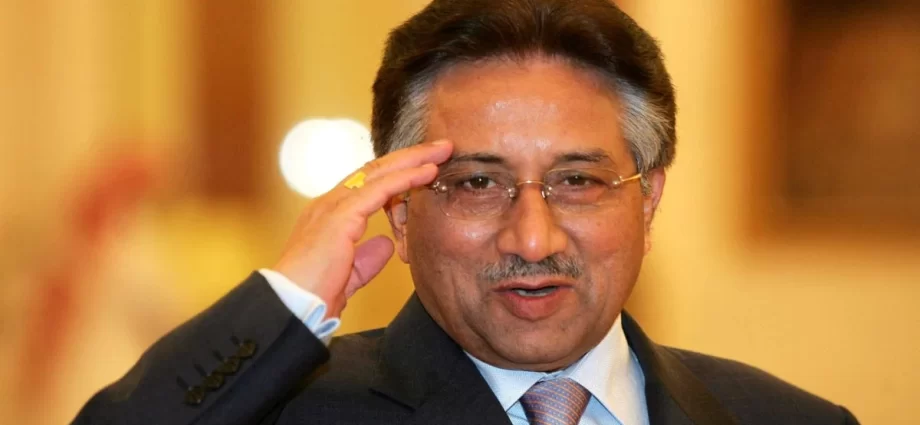chief justice remarked that he respected his fellow judge but “we should look at the past now.”
“If a decision has to be overturned, it should be the one that gave way to martial law. These judges should also be held accountable,” the judge remarked.
ISLAMABAD ( Web News )
Supreme Court Justice Athar Minallah on Tuesday remarked that the judges who granted legal cover to late military dictator Gen Pervez Musharraf’s martial law should be tried in court.
The comments came amid the apex court’s hearing on a set of appeals against the January 13, 2020, Lahore High Court order of declaring unconstitutional the December 17, 2019 death sentence awarded to Musharraf by the Special Court in the high treason case.
Chief Justice of Pakistan (CJP) Qazi Faez Isa, Justice Syed Mansoor Ali Shah and Justice Aminuddin Khan are other members of the SC bench. Musharraf was one of the petitioners challenging the Special Court ruling.
In an infamous purge on November 3, 2007, Musharraf had imposed a state of emergency and placed several key judges under house arrest in Islamabad and elsewhere in Pakistan. Previously on October 12, 1999, he had staged a military coup against the PML-N government led by Nawaz Sharif.
During today’s hearing, as Sindh High Court Bar lawyer Rashid A. Rizvi mentioned Musharraf’s martial law, Justice Minallah suggested he refrain from delving into the past.
At this, the chief justice remarked that he respected his fellow judge but “we should look at the past now.”
Justice Minallah agreed with the chief justice and pointed out that when “Musharraf violated the Constitution on Oct 12, dissolved assemblies, this very court granted cover to the measures”, suggesting that “there should be a trial of those judges who declared Musharraf’s martial law legal.”
He questioned why legal proceedings were initiated only on the emergency imposed on Nov 3, 2007 when Supreme Court judges were arrested by the military.
“If action will be taken only on the attack on judges on Nov 3, then the question of fair trial will be raised. Was the attack on the judges a more serious matter than dissolving the assemblies and suspending the Constitution?”
Justice Minallah told Rizvi it was “time for truth to be told”.
“If a decision has to be overturned, it should be the one that gave way to martial law. These judges should also be held accountable,” the judge remarked.
At this, CJP Isa said that he could not undo what had happened in the past.
“Was everyone punished in South Africa? If we want to become a nation, we have to fix the future by looking at the past,” the chief justice observed.
He added that at times even murderers end up evading their punishment as well and that the process of justice and accountability would take place in the afterlife as well.
CJP Isa called on lawyers to come and explain why “pictures of judges who violated the Constitution” were present in the apex court, asking why should judges be the only ones to point it out.
“The media is also responsible. It should also be held accountable. Tell me how many journalists were against and how many were in support of martial law? We should learn from history, children should also learn.”
Rizvi, meanwhile, said that he had brought the matter of judges’ conduct to the court’s notice and agreed that there should be proceedings against those who justified Musharraf’s actions, subsequently wrapping up his arguments.
The hearing was adjourned till January 10.

